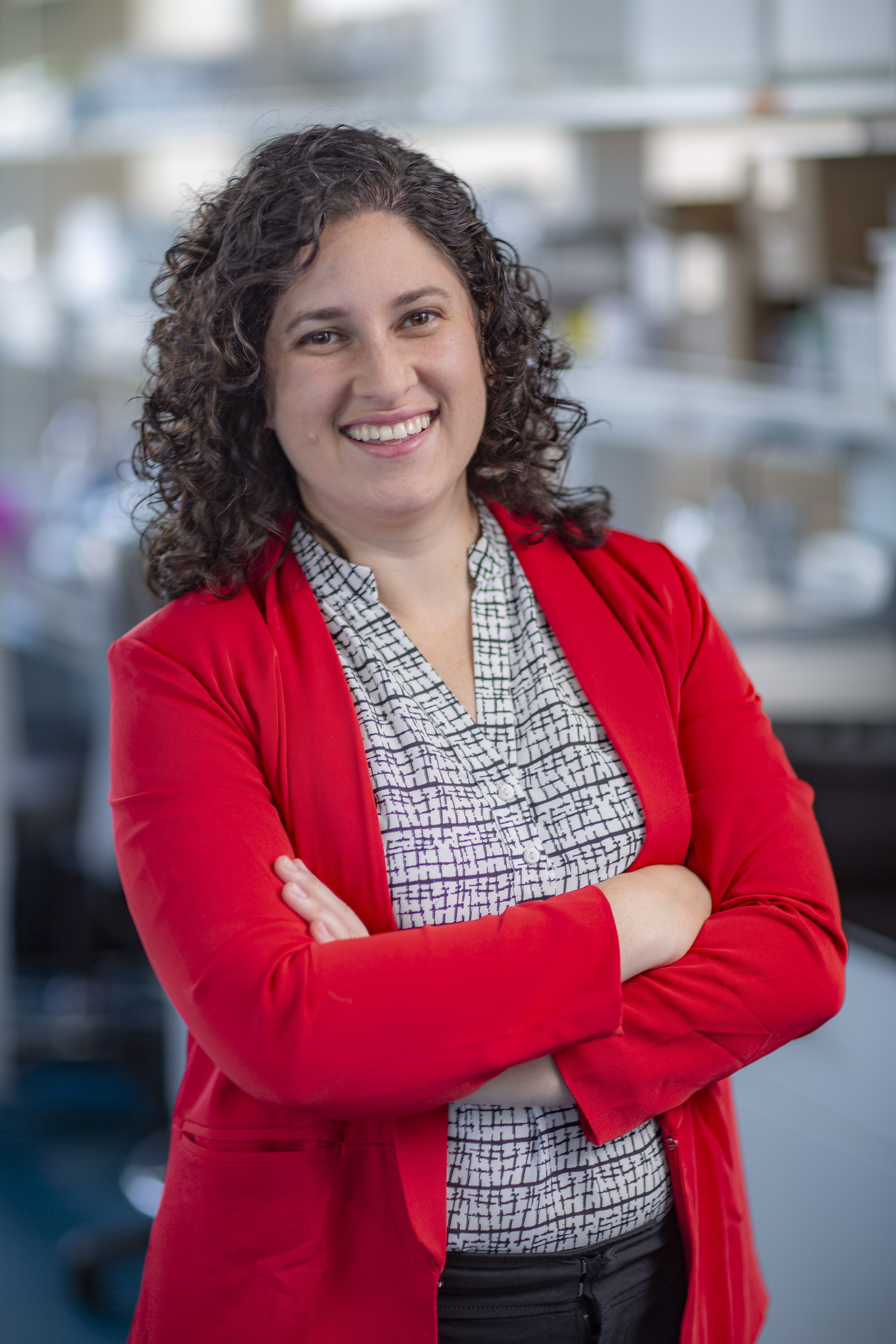
2024 Peter Joseph Pappas Recipients Announced at 2024 SMFM Pregnancy Meeting
The Preeclampsia Foundation announced today the recipient of its 2024 Peter Joseph Pappas Research Grants at the Society for Maternal Fetal Medicine 44th Annual Pregnancy Meeting. Based on the recommendations of its Scientific Advisory Council, the Preeclampsia Foundation awarded two grants totaling $99,997 USD each to Rachel Riley, PhD and Jaqueline Parchem, MD.

Pictured: Dr. Rachel Riley
Dr. Rachel Riley is an Assistant Professor of Biomedical Engineering in the Henry M. Rowan College of Engineering and the Rowan-Virtua School of Translational Biomedical Engineering and Sciences at Rowan University. Prior to starting her current position, Dr. Riley completed her PhD at the University of Delaware and her postdoctoral fellowship at the University of Pennsylvania. Her research laboratory is at the interface of nanotechnology, engineering, and medicine to develop drug delivery platforms to study and treat diseases of pregnancy. This project will develop nanoparticles that target trophoblasts in the placenta for nucleic acid delivery. We aim to use these nanoparticles as therapeutics and to understand the molecular drivers of preeclampsia, ultimately leading to new therapeutic interventions.
 Pictured: Dr. Jacqueline Parchem
Pictured: Dr. Jacqueline Parchem
Dr. Jacqueline Parchem is a maternal-fetal medicine physician-scientist at The University of Texas Health Science Center at Houston (UTHealth Houston). Parchem is dedicated to improving maternal and child health through research that advances our understanding of pregnancy disorders. Her current research focuses on trophoblast biology and identifying how placental adaptations to stress contribute to preeclampsia. The proposed study will examine the utility of placental growth factor (biomarker of placental function) in the obstetric triage setting, and explore the relationship between circulating PlGF and underlying trophoblast biology. Doctors Baha Sibai, professor of maternal-fetal medicine at UTHealth Houston, and Natalie Neff, maternal-fetal medicine fellow at UTHealth Houston, are co-leaders of the study.
Named for the infant son of preeclampsia survivor Lauren Pappas and her husband Clement, the Peter Joseph Pappas Research Grants program award grants totaling up to $200,000 each year. The ultimate goal of the program is to drive research that will eliminate the delivery of pre-term babies as an intervention for severe preeclampsia, HELLP syndrome, and related hypertensive disorders of pregnancy.
“We lost our son Peter due to preeclampsia following a 29-week delivery in 2015,” explained Lauren Pappas. “Since then we have dedicated our lives to helping others avoid the same outcome by establishing the Peter Joseph Pappas Fund.”
“Thanks to generous contributions from family and friends, and our partnership with the Preeclampsia Foundation, we are making strides to reach our ultimate goal of eliminating pre-term births due to preeclampsia by 2050,” added Clement Pappas.
The Peter Joseph Pappas Research Grants program adds to the Preeclampsia Foundation’s portfolio of research programs including the Vision Grant program for young investigators, PRIME for health services research, and EMPOWER, which helps build research capacity in low- and middle-income countries.
Questions about Peter Joseph Pappas Research Grants program? Email PJPGrants@preeclampsia.org.
About the Preeclampsia Foundation
The Preeclampsia Foundation is a U.S.-based 501(c)(3) non-profit organization established in 2000 to improve the outcomes of hypertensive disorders of pregnancy by educating, supporting, and engaging the community, improving healthcare practices, and finding a cure. We envision a world where preeclampsia and related hypertensive disorders of pregnancy no longer threaten the lives of mothers and babies. For more information, visit www.preeclampsia.org.
About the Peter Joseph Pappas Research Grant Program
Clement and Lauren Pappas of Philadelphia, PA, lost their firstborn child, Peter Joseph, after HELLP syndrome necessitated his early delivery. Their son, born at 29 weeks’ gestation, spent a week in the neonatal intensive care unit before dying from a central line infection. The Pappas family, along with friends and family, have established this special fund with the Preeclampsia Foundation to advance research, with the overarching goal of eliminating pre-term births due to preeclampsia by 2050.
Related Articles

Your story is needed to improve outcomes for moms like you. Add your voice to critical preeclampsia research to ensure that every story is heard.

Frequently asked questions about the Preeclampsia Registry, a patient-driven registry and biobank.

The Preeclampsia Foundation offers research funding, study recruitment, and other patient engagement services to researchers.

We provide research grant funding to advance progress towards detection, prevention, or treatment of preeclampsia, HELLP syndrome, and other hypertensive disorders of pregnancy.

Hypertensive disorders of pregnancy significantly increase your risk of developing long-term heart problems. A careful review of blood pressure elevations during and after pregnancy may assist in iden...

Hypertensive disorders of pregnancy (HDP) can affect different groups of women in different ways, and even though we know this happening, we don't fully understand why. There are many factors, like bi...

There is growing evidence that studies examining pregnancy and its complications need to start early within the pregnancy to fully understand the nature of preeclampsia. Key gestational milestones, wh...

It is known that chronic hypertension and high BMI (body mass index) are risk factors for hypertensive disorders of pregnancy (HDP). Studies documenting this risk have usually assessed blood pre...

Several biomarker tests are under development to predict or diagnose preeclampsia. While none of these tests are yet widely accepted in U.S. clinical practice, two FDA-approved tests are available in...



